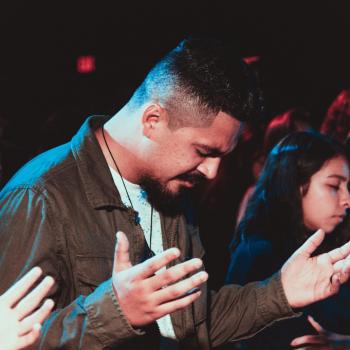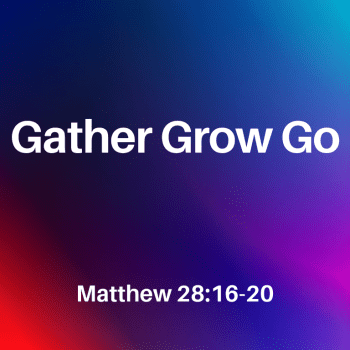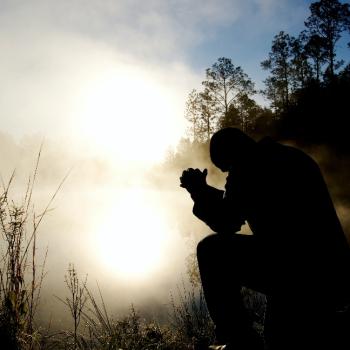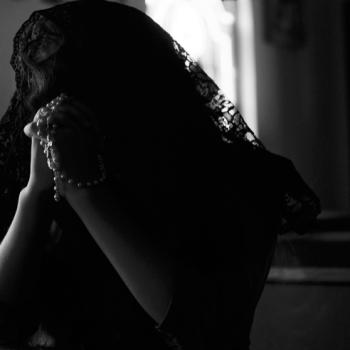Jeremiah 34:12-17 Proclaiming Freedom
Over the next three weeks, I want to share with you a series of sermons based on the idea of “life, liberty, and the pursuit of happiness.” Today, I want to talk to you about liberty, also called freedom. On the heels of our Independence Day Celebration, I want to share with you the nature of freedom, how God created us to be free, and how the sharing the good news of Jesus is the best ways to proclaim freedom to other people.
We live in a country which prides itself on freedom. Yet, we are in danger of losing that same freedom as a civilization. For example:
What is past is prologue. History repeats itself as time marches on. A study of history shows that the great civilizations of the world have averaged about 200 years. The people of the world have followed this timetable.
The people go:
From slavery to spiritual faith
From spiritual faith to courage
From courage to liberty
From liberty to abundance
From abundance to selfishness
From selfishness to apathy
From apathy to dependence
From dependence back to slavery.
—The Bible Friend1
So while our society is in danger of losing the freedoms we have enjoyed for over two hundred years. We are in danger of enslaving ourselves in our own culture. This is similar to the problem of the Israelites during Jeremiah’s time.
Freedom is part of God’s Nature
““This is what the Lord, the God of Israel, says: I made a covenant with your ancestors when I brought them out of the land of Egypt, out of the place of slavery, saying:” (Jeremiah 34:13, HCSB)
Since the beginning of the history of Israel, God made a covenant with His people that He would make them free. He would be their God and they would be His people. Although there would be times of slavery, God would always be there to free His people. He illustrated this act of freedom in the Exodus event against Egypt when God sent Moses to free His people. At the same time, God expresses Himself as a God who wants us to live in freedom. He said this in Paul second letter to the Corinthians:
“Now the Lord is the Spirit, and where the Spirit of the Lord is, there is freedom.” (2 Corinthians 3:17, HCSB)
So part of God’s nature is the idea that He wants us to be free. Therefore, one of the characteristics of God’s people is that they be free.
Freedom should be a characteristic of God’s people
“At the end of seven years, each of you must free his Hebrew brother who sold himself to you. He may serve you six years, but then you must send him out free from you. But your ancestors did not obey Me or pay any attention.” (Jeremiah 34:14, HCSB)
God made it part of Israel’s social fabric. God instituted a “Year of Jubilee.” In this case, God provided a way for Israel to keep from hurting one another financially. When used properly, no one became more important than God. Everyone would be cared for properly. You see this started in Leviticus.
“You are to consecrate the fiftieth year and proclaim freedom in the land for all its inhabitants. It will be your Jubilee, when each of you is to return to his property and each of you to his clan.” (Leviticus 25:10, HCSB)
At this time, Zedekiah was king. However, people were abusing the covenant which God had with His people. God had created within the Mosaic Law, the idea of a “Year of Jubilee.”
The terms of God’s covenant had allowed service of one Hebrew to another, but never slavery. God also specified a six-year limitation to that service; the seventh year was to be a jubilee release from all further obligation. Finally, the king and the people agreed to the letter of the law by freeing the slaves, but they missed the spirit of the law.2
The problem is that people misused this, and enslaved people economically.
“Do not take revenge or bear a grudge against members of your community, but love your neighbor as yourself; I am Yahweh.” (Leviticus 19:18, HCSB)
“A poor man is hated even by his neighbor, but there are many who love the rich.” (Proverbs 14:20, HCSB)
God never wants us to use our freedom to abuse someone else’s freedom. Instead, we should be in the business of “setting people free.”
We should be in the business of “setting people free.”
“Today you repented and did what pleased Me, each of you proclaiming freedom for his neighbor. You made a covenant before Me at the temple called by My name.” (Jeremiah 34:15, HCSB)
Freedom is part of God’s nature. God endows everyone with liberty. As a result, we are responsible with the freedom which God gives us.
The Bible warns us that we should not use our liberty to sin.
“As God’s slaves, live as free people, but don’t use your freedom as a way to conceal evil.” (1 Peter 2:16, HCSB)
Charles Kingsley once wrote that “there are two freedoms—the false, where a man is free to do what he likes; the true, where a man is free to do what he ought.” If we are to be truly free we must follow the latter, not the former.3
Dr. Tony Evans once said: You cannot be free without restrictions. A fish is not free to roam the jungle. It wasn’t made for that. A lion is not free to live in the ocean, because it wasn’t made for that. Freedom is having the benefits accrue to you that you were created to receive. Freedom doesn’t mean there are no boundaries. Freedom means that within the right boundaries you can maximize your potential.4
We should not use our liberty to hurt other people in the church.
“For you were called to be free, brothers; only don’t use this freedom as an opportunity for the flesh, but serve one another through love.” (Galatians 5:13, HCSB)
We should not use our liberty to prevent the Gospel from doing its life-changing work.
“But be careful that this right of yours in no way becomes a stumbling block to the weak.” (1 Corinthians 8:9, HCSB)
The trouble comes when we take the liberty and freedom which God has given me and abuse it. In the case of God’s people during Jeremiah’s time, they were “taking their repentance back.” They were showing repentance only to get God’s favor. They never truly wanted to change. They wanted the benefit of liberty without the responsibility that comes with it.
“But you have changed your minds and profaned My name. Each has taken back his male and female slaves who had been freed to go wherever they wanted, and you have again subjugated them to be your slaves.” (Jeremiah 34:16, HCSB)
God doesn’t like it when we take the freedom which He gives us and we misuse it. Look at what He tells His people. They are not truly changed people and as a result, they will reap consequences.
““Therefore, this is what the Lord says: You have not obeyed Me by proclaiming freedom, each man for his brother and for his neighbor. I hereby proclaim freedom for you” —this is the Lord’s declaration—“to the sword, to plague, and to famine! I will make you a horror to all the earth’s kingdoms.” (Jeremiah 34:17, HCSB)
Because Zedekiah and the people broke the covenant they had made concerning freeing the Hebrew slaves, sword, pestilence, and hardship would be free to do their work upon them.
The Lord set us free. He released us from the penalty of every sin in our lives. Therefore, we are to forgive others. And sometimes we do that for awhile. But then we remember what he said about us or what she did to us and, like Zedekiah, we change our minds and back into our debt they go.5
Because the people of God denied freedom to others, they will themselves be denied freedom. God makes it very clear that whatever good thing that He gives us, He expects us to give to other people.
Therefore He will proclaim another kind of liberty—liberty for the sword, and pestilence, and famine to destroy them; as the context shows.6
Thankfully, Jesus picks up the mantle of freedom and makes it His mission. Since we could not carry freedom to other people very well, Jesus decided to show us how to do it right. Jesus picks this up in Luke 4, and makes this part of His mission.
“The Spirit of the Lord is on Me, because He has anointed Me to preach good news to the poor. He has sent Me to proclaim freedom to the captives and recovery of sight to the blind, to set free the oppressed,” (Luke 4:18, HCSB)
He is fulfilling what the people of Israel could not do. He is going to make setting people free part of His mission.
Some people live their lives like hamsters. A hamster looks outside the glass of his cage and sees freedom. He decides to run for it. He gets on the wheel. He runs on the wheel, trying to get to his freedom. He soon realizes that he’s not getting anywhere. So, he runs faster. An hour later, he’s still in the same spot.
Many of us have been trying to break a habit for years, and ten years later we are still in the same spot. We’ve made New Year’s resolutions to quit bad habits or to have better marriages or to work on bettering our finances. A year later, we are in the same position.
Why does this happen? We are using the wrong method. When we are trapped, we cannot change things ourselves. The only way for a hamster to find freedom is for the owner of the hamster to reach inside the cage and lift it out of there. Somebody bigger than the hamster has to take over.
Trying to get out of a caged situation using only our own human effort is not good enough.7
While we are depending upon God (who is bigger than us) to set us free, we need to remember to not deny freedom to others who need it. For example:
Jesus told a parable of a man who was released from a two-million dollar debt. But when he found someone who owed him a few dollars, he demanded to be paid on the spot. When the king heard about this, he brought the man before him and said, “I released you of a two-million dollar debt. Yet you demand payment of a man who only owes you a few dollars? You’re going to prison and you won’t get out until you have paid every penny” (Matthew 18). How could the man earn money in prison to pay his debt? He couldn’t. There was only one way out of prison: he had to die.
How will you get out of the prison of bitterness and judgment, depression and criticism? There’s only one way out: die. Die to yourself and your disappointments, your disillusionment and discouragement and say, “Lord, I’ve been forgiven so much. Help me to die to what others have said about me or done to me.”
This is so important because bunches of us are in prison right now mentally and spiritually because we’ve brought back into bondage people we once forgave. Whether it’s a girlfriend, a husband, a boss, or a neighbor, truly forgive them and resist the temptation to bind them again.8
Maybe you are that person who needs to be set free? You can ask to follow Jesus out of sin’s prison. Maybe you are that person who is enslaving other people. You know you are free, but you don’t want others to be free. You need to come to God and repent – truly change your life – and let God show you how you can live your life in a way which frees other people to the life-changing message of the Good News of Jesus Christ.
Footnotes
1 Paul Lee Tan, Encyclopedia of 7700 Illustrations: Signs of the Times (Garland, TX: Bible Communications, Inc., 1996).
2 John Guest and Lloyd J. Ogilvie, Jeremiah, Lamentations, vol. 19, The Preacher’s Commentary Series (Nashville, TN: Thomas Nelson Inc, 1988), 228.
3 Herschel H. Hobbs, My Favorite Illustrations (Nashville, TN: Broadman Press, 1990), 45.
4 Tony Evans, Tony Evans’ Book of Illustrations: Stories, Quotes, and Anecdotes from More Than 30 Years of Preaching and Public Speaking (Chicago, IL: Moody Publishers, 2009), 112–113.
5 Jon Courson, Jon Courson’s Application Commentary: Volume Two: Psalms-Malachi (Nashville, TN: Thomas Nelson, 2006), 552.
6 Ethelbert William Bullinger, Figures of Speech Used in the Bible (London: Eyre & Spottiswoode, 1898), 289.
7 Tony Evans, Tony Evans’ Book of Illustrations: Stories, Quotes, and Anecdotes from More Than 30 Years of Preaching and Public Speaking (Chicago, IL: Moody Publishers, 2009), 113–114.
8 Jon Courson, Jon Courson’s Application Commentary: Volume Two: Psalms-Malachi (Nashville, TN: Thomas Nelson, 2006), 552.
















